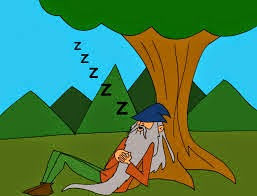Voter Apathy?
Around
election time, pundits begin to worry about low voter turnout. So
they write newspaper articles recommending all kinds of methods for
simplifying the voting process: early voting, same day
registration,voting by computer and other clever ways of streamlining
the electoral process.
But
that is, of course, barking up the wrong tree. The Founders were very
explicit about the
voting process and its functions.
Citizens were to vote in order to select the best representatives:
men and women who were best informed, persons of integrity devoted
not to partisan interests but to the good of all the citizens. That
is how James Madison described the electoral process in Paper 10 of
The
Federalist Papers. Today
the voting process has become completely perverted.
Our
congressional leaders often have mediocre minds excelling only in
their intense partisanship. They
are not looking for what is good for all; they are focused on their
private interests, namely getting reelected.
Elections today are about winning, not about selecting the best
leaders. Voters
know this and therefore do not bother to vote.
Elected
officials are supposed to represent the interests and thinking of
voters in their districts. If that were their goal, they would need
to spend a good deal of time conversing with those voters to become
thoroughly acquainted with the citizens' beliefs and opinions about
national and local affairs. But since getting elected is so very
expensive, Congresspersons are instead most interested in attracting
money from very rich donors. With very few exceptions your
representative in Congress is interested in financial donors before
they care about what the majority of us, the people with little
money, think.
This is no secret. Is it a surprise
that Joe Citizen and Jane Citizen are not interested in electing
anyone because whoever wins, that representative will not be
interested in what Joe and Jane think?
We often say that in our democracy
citizens control the actions of the government by electing one
representative rather than another. That makes it look as if in
elections policy issues decide who is chosen to represent a district.
But
with 30 second television ads being a major means of communicating
with voters, do policy issues get discussed? If instead of candidate
forums we had public conversations between voters and citizens in
which people could speak openly about what they think, the candidate
would get a better idea of what people—as opposed to billionaires
financing the election—think about. The participants and audience
for these public discussions would get a better view of different
policy disagreements. Everyone would learn. From the existing
televised candidate forum I learn who is good-looking and who is not,
who is the quickest on the draw in a debate. I learn very little
about the issues.
Why
should I participate in a sporting event where winners and losers are
not important to me, or in a quasi-TV quiz show when what actually
really matters to me is what the government will do and whether it
will be swayed by what I need, what I think, and what I hope for. But
political candidates are not interested in that.
Finally
why should I vote if the candidates treat me with open contempt?
These days the mail brings a lot of campaign literature. Everyone
knows that these mailings give a one- sided view of the problems the
country faces. They are misleading and tend to misrepresent the
positions of candidates as well as of their opponents. They
are meant to manipulate voters. The
writers of electioneering material make used care salesmen look like
persons of exemplary integrity. They
make no bones about not respecting voters. Why should I vote for
people who look down on me?
What
is the message here? Campaign literature is written by folks who
believe that you can persuade voters of any nonsense as long as you
repeat it often and loud enough. Campaign literature treats citizens
as gullible fools. That is hardly designed to make them want to vote.
Having
transformed political campaigns into something like a football or
baseball game, our political leaders should not be surprised if many
citizens show disinterest. Since elections have stopped being
opportunities for citizens to debate difficult policy issues and to
be heard by their elected representatives, why should they
participate?
Many
people will get hurt if the arch conservatives win many elections.
Think of the future of gay rights, health care for the middle class
and the poor, further measures to impoverish working people, or think
about fighting global warming. However perverted, the outcome of the
electoral process sometimes makes a difference. But it is very hard
to predict when that will happen. Unfortunately being an apathetic
voter makes a lot of sense, much of the time.


No comments:
Post a Comment